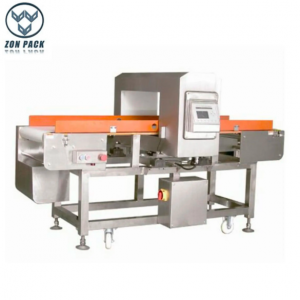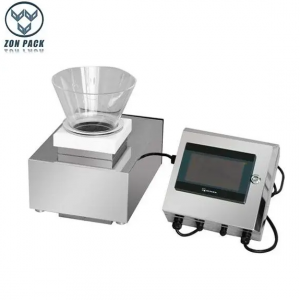In today's fast-paced manufacturing industry, ensuring product quality is more important than ever. As the demand for high-quality and safe products continues to increase, manufacturers require cutting-edge technology to meet the highest standards. This is where the inspection machine comes into play. Inspection machines play a vital role in quality control, allowing manufacturers to detect defects and ensure that only perfect products reach the market.
Inspection machines are an important part of the manufacturing process, focusing on identifying and eliminating any defects in the production line. These machines use advanced technologies such as cameras, sensors and artificial intelligence to scrutinize products for deviations from set standards. They can identify anything from surface defects and dimensional changes to foreign particles and labeling errors.
One of the main advantages of inspection machines is their ability to detect defects in real time, allowing immediate corrective action. Not only does this prevent defective products from entering the market, it also helps minimize waste and rework, ultimately saving costs for manufacturers. Additionally, inspection machines help build and maintain a brand reputation for high-quality products and exceptional customer satisfaction.
When it comes to product marketing, the role of inspection machines is invaluable. By ensuring that only the highest quality products reach the market, manufacturers can win the trust of consumers and gain a competitive advantage in the market. Consumers are increasingly conscious about the products they buy and are more likely to choose products from well-known brands known for quality and reliability. Inspection machines enable manufacturers to meet and exceed these expectations, making them leaders in their respective industries.
In addition, inspection machines provide manufacturers with comprehensive data on product quality, enabling continuous improvement of production processes. By analyzing the data collected by inspection machines, manufacturers can identify trends, root causes of defects, and areas for improvement to optimize production processes and maintain consistent product quality.
In addition to the obvious benefits of ensuring product quality, inspection machines also play a vital role in regulatory compliance. In highly regulated industries such as pharmaceuticals and food manufacturing, adhering to strict quality standards is non-negotiable. Inspection machines provide manufacturers with the means to meet regulatory requirements, ensuring that products meet necessary safety and quality standards before being placed on the market.
In summary, inspection machines are an indispensable tool for manufacturers pursuing the highest product quality. Their role in quality control, waste reduction, brand reputation and regulatory compliance cannot be overstated. As manufacturing continues to evolve, the need for advanced inspection machines will only grow. Manufacturers who invest in state-of-the-art inspection equipment can not only meet current industry standards, but also position themselves as leaders in their respective markets. With the help of inspection machines, manufacturers can ensure that every product leaving the production line is flawless.
Post time: Dec-18-2023



